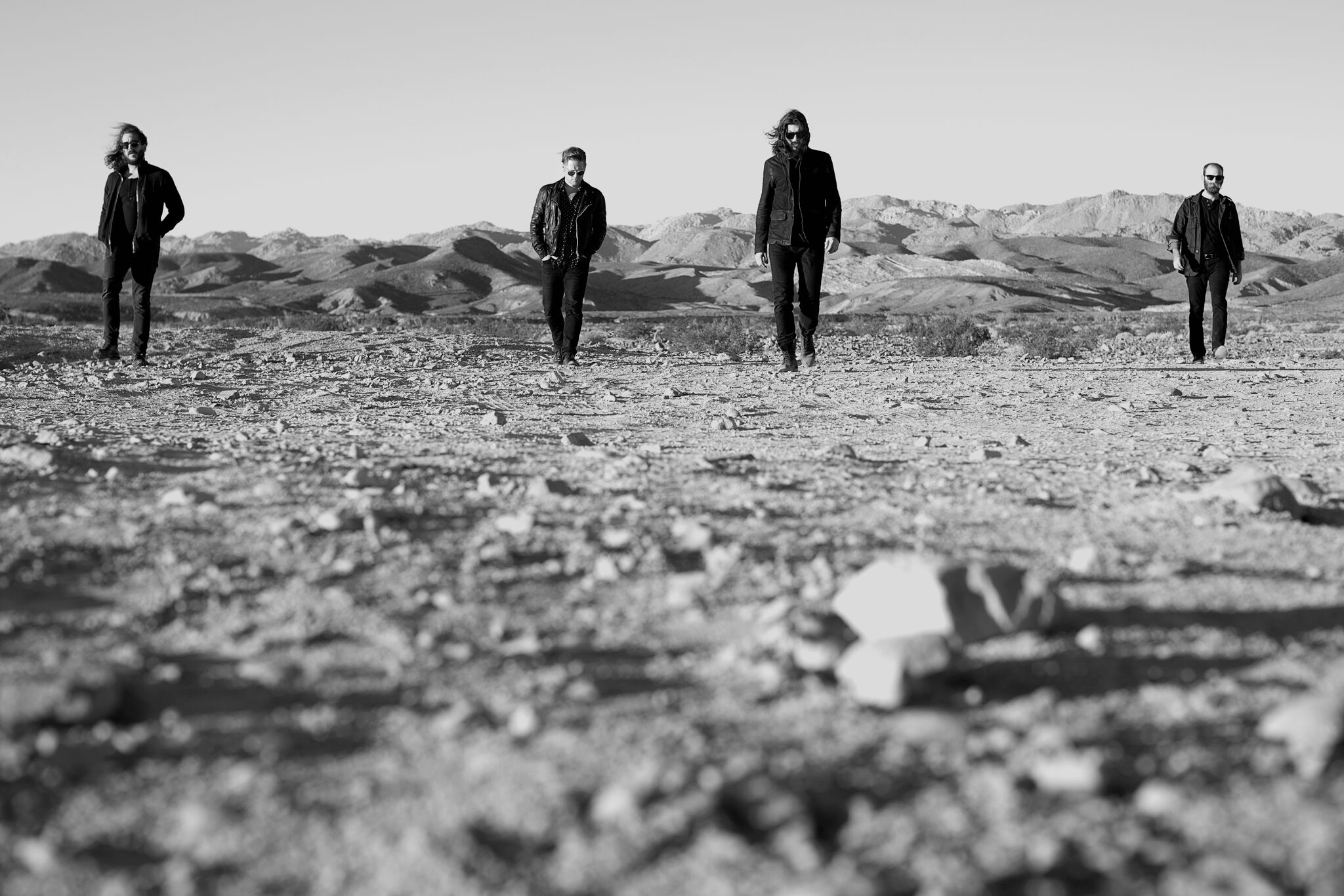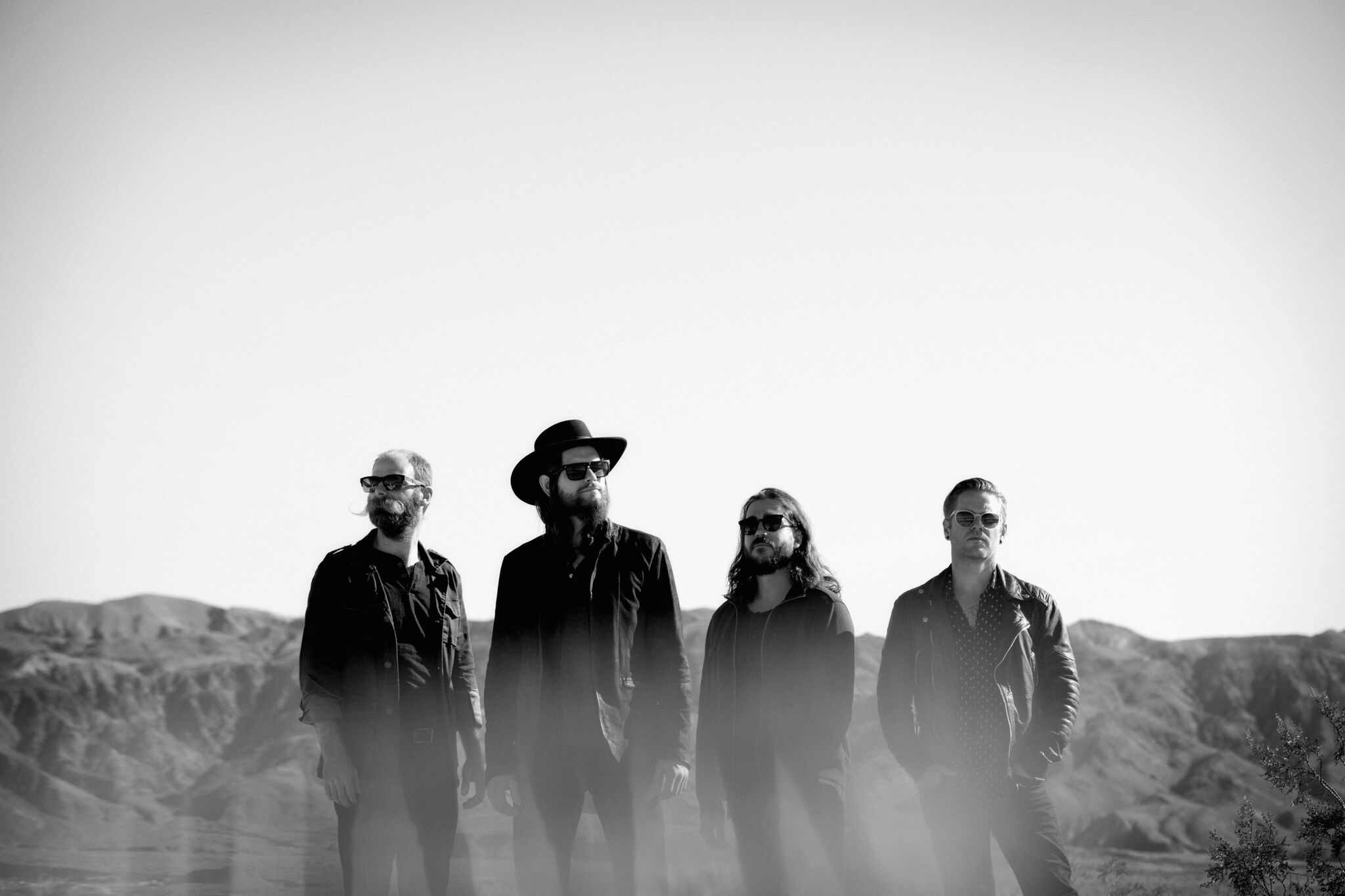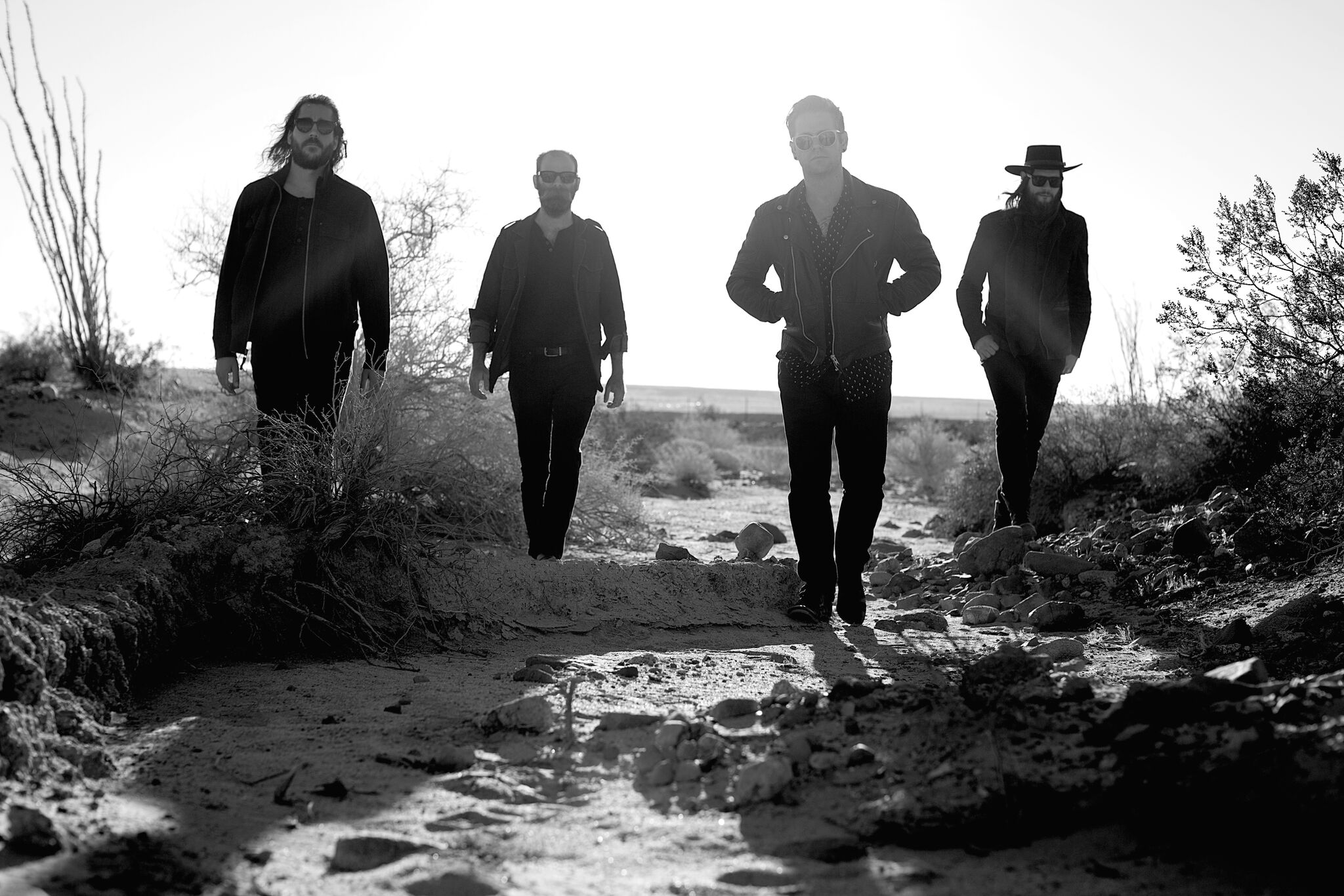WEBSITE | FACEBOOK | INSTAGRAM | SOUNDCLOUD | TWITTER | YOUTUBE | PRESS MATERIALS
For a few years, Joshua Zimmerman couldn’t bring himself to listen to his band’s most recent album. Enemies Multiply – the Silent Comedy LP he and Jeremiah, his brother and longtime bandmate, had written and recorded several years ago – felt too personal, too raw to engage with. Born of a rough patch in the Zimmerman brothers’ personal and professional lives, listening to it felt like rubbing salt in healed wounds. Despite the brothers collectively viewing the album as some of their best work in the decade-plus they’d been a band, the project was shelved.
Then the 2016 election happened.
“And suddenly, at that moment,” while living in New York City and feeling bewildered and frustrated at the country’s new reality, “I realized the feeling of this moment was what we wrote this music for,” Joshua recalls. A certain pall and desperation had settled over the country in the days and week after the election and, in Joshua’s estimation, the album now had widespread cultural resonance. “At this particular moment in U.S. history I felt like a lot more people could take comfort in the songs than ever before,” Joshua notes of the 11-track LP that at long last is set for release on October 19th. Jeremiah concurred: “For the first time ever I just want people to hear it and have it.”
Recorded in Austin, Texas, Enemies Multiply is sonically a big-boned, bruising affair. The brothers channeled an admittedly confusing time of conflict in their lives — as well as the previous perilous years leading up to it, characterized by what Josh describes as “being jerked around by the music industry” — into their most impassioned, hard-hitting, and thoroughly engaging album of their career. Standing at the center is “Sharks Smell Blood,” all bluesy strut, spooky choirboy harmonies and sing-along hook. Likewise, “Avalanche” is framed around a searing guitar line and squelching church organ. Like the album itself, and the band’s own views on it, “that song evolved over time. I’ve loved it in every incarnation it went through, but when I listen to how it ended up I really feel that’s the pinnacle of all of that work,” Joshua explains. Even “No Saints Forgiven,” which begins as a back porch delta-blues confessional, quickly explodes into a Van Halen-esque sing-along at the chorus.
But it’s the messages in the songs – namely combating malevolence by banding together with likeminded people – that compelled the Silent Comedy to finally release the album. As children, after traveling the globe with their missionary parents only to return to the United States, meander some more, then settle down in San Diego in a house with literally nothing but an upright piano, the two brothers looked to musical collaboration in their mid-teens as a cathartic outlet. “Jeremiah started writing songs, “Josh recalls. “That was kind of his way of processing everything that we’d been through. That’s really when we started writing together.” It was their traveling that also colored their worldview which, when compared to some of their peers, was decidedly darker. “It skewed our perception to see how much suffering there is in the world and how fortunate we are in the United States by comparison,” Joshua explains. “We have always had a little bit more somber view of things.” Enemies Multiply, he then adds, “is a distillation of that worldview.” Jeremiah admits the album “has a lot of stuff in there about people backstabbing each other” which caused some record labels to initially balk at releasing it. And even now, as he wishes that subject matter weren’t so applicable, “I think people are more sympathetic to that idea,” Jeremiah offers. The album, he adds, “is a journey in context.”
Though, as Joshua explains, it’s the album’s most hopeful track, the closing “Peace of Mind,” that he says now connects with him on an intensely personal level. One of the most collaborative songs he and Jeremiah ever wrote, the harmonica-drenched folk lament, on one hand, “is really about being in a desperate place and a hopeless place, but also about taking comfort in banding together.” It especially spoke to him in the past two years, particularly as the world seemed to slip further into chaos. “It still is a really emotional song to listen to and to sing,” he adds.
“All of what we have been through as a band is wrapped up in this new project,” Joshua notes of the Silent Comedy’s realization that conflicts and challenges often reveal themselves as the best source material for artistic expression. The years spent writing the material that became Enemies Multiply, according to Jeremiah, “were exhausting and it was really taking a toll on us. We were in a legitimate struggle. But all the songs started to take on a new meaning. This entire process was saturated with so much frustration and conflict. So to see something like Enemies Multiply rise out of that is awesome.”
While not always visible in plain sight, rock music has always formed the foundation of the Silent Comedy. The brothers, who were fanboys for bands like Rage Against The Machine and At The Drive-In during their teenage years, first delved into band life via joint membership in a punk and post-hardcore act. But after forming the Silent Comedy in the mid-2000’s, their early albums, including 2010’s Common Faults,, began to incorporate the folk, Americana and the blues they picked up from listening to a healthy dose of Cat Stevens and Simon and Garfunkel. Still, all throughout, their live show was centered on its rollicking, over-the-top, energy. To that end, the Zimmerman brothers felt their studio efforts needed to better match up with their live persona.
“In a way it was only a matter of time before we fully embraced our rock n’ roll roots,” Josh says. Adds Jeremiah: “The farther we kept going, we realized the stuff that was more interesting to us was the more energetic and rock-focused material. Our energy has been our biggest asset. We wanted to put that on the record.”
If the journey has felt long and at times painful, the Zimmerman brothers feel that with Enemies Multiply now set for release the ends truly do justify the means. “There’s a certain freedom to whatever happens now,” Jeremiah says. “After a while in life you start to look at the bigger picture.”
”





